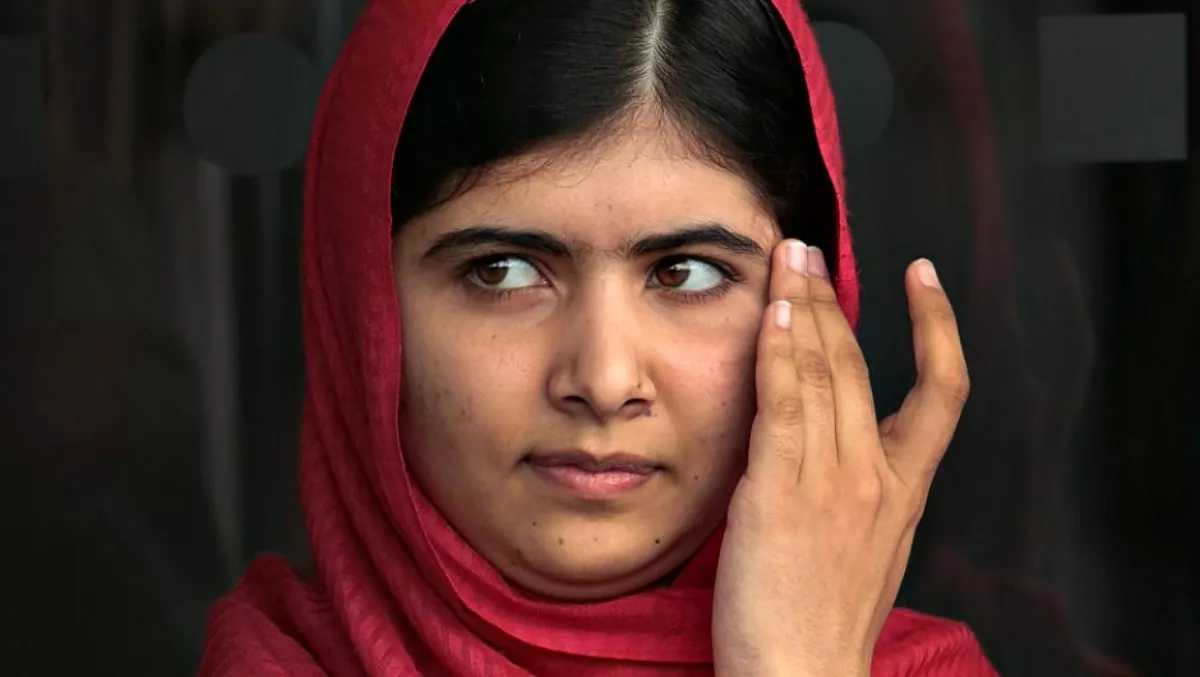
Film review: He Named Me Malala
Malala Yousafzai is everywhere: on book covers, tv shows, posters, flags, badges, all over the internet, and now, as the subject of the new documentary He Named Me Malala.
The film tells the story of the teenage girl who became a voice for a suppressed nation and underrepresented minorities within. No big deal.
Meanwhile, us mere mortals spent the majority of our teenage years trying to stay afloat and not get hit in the face with too many dodgeballs.
This is a movie that will make you question what you're doing with your life and inspire you to invest in a megaphone and join the conversation. In actuality you'll go home and eat an entire pack of Peckish Thins and write five to-do lists. But still.
Over the course of 87 minutes the film builds a picture of Malala and reveals the relationship between a girl and her father, the nature of celebrity, the unrest in Pakistan, and the power of education.
It's also a crash course in how not to plot out a documentary, and a lesson in embracing substance and hard questions instead of shying away from them.
Through the film we learn about Malala's origins and her upbringing, including when the Taliban welcomed themselves to the Swat Valley and promptly started executing strict rules (and people). It tells the story of how Malala and her father responded to this, and the ripple effect of their decisions.
The movie comes back again and again to the life-changing power of education, and the bizarre way one person can become an icon, heralded the world over.
As the film shows, Malala skyrocketed into fame when, at 15, she was shot in the head by the Taliban while on the bus home from school and not only survived but came out arguably stronger than ever.
Instead of dropping off the face of the earth she spoke out about topics such as women and education with more fervour than ever.
It didn't take long for the Malala bug to spread like wildfire and everyone to know her name and her face.
Before I watched the film I only knew of Malala vaguely and didn't understand the insanity and the fixation. But now, I get it.
This person is both youthful and wise, playful and serious. Extremely articulate, aware and intelligent, blatantly passionate, and with a smile akin to a gentle shoulder squeeze from your favourite Aunt, it's easy to see how she captivated people around the globe.
This is someone who can go from giving a speech on the state of education in Pakistan, to bantering with her brothers, to talking on the Today Show, to blushing over cricket players, all with uncomplicated authenticity.
These qualities largely come from her relationship with her father. This is, I'd say, the most significant relationship in her life ten times over, and it's acknowledged throughout the film.
Intelligent and well-educated, her father lives his life with the understanding that knowledge is power, and that freedom of speech, and freedom of communication, is worth fighting for.
Malala and her father are, at times, total mirror images of each other, and the film highlights that some think she is merely a product of him.
When asked by the interviewee if she is, in fact, a puppet of her father, she calmly shot him down with all the grace in the world and showed in two seconds flat that, while she may be influenced by her father, she is her own person.
Told through video clips, news footage, interviews and animations, Malala's story comes in haphazard segments, like someone throwing puzzle pieces at you and expecting you to know where they belong. I'm all for trying something different, but there's a time and a place to be non-linear and this wasn't it.
Perhaps the film creators expected people to already know her story and not need to be told again. But for someone who was new to it it was unnecessarily confusing, stopping and starting, telling parts of the story only to divert off and then loop back around.
On top of this, the movie glossed over some pretty important moments and conversations.
Perhaps this was purposeful, with the idea that the film can function as a starting point and viewers can choose to do more of their own investigations about what is happening with these extremist groups, the Pakistani culture and suppression of women.
But while the softness of the film was nice, I wanted it to build, I wanted to dive in a little deeper, I wanted to know more about the situation, Malala, and her completely unconventional life.
It's difficult to admit the flaws of this film because all in all it is a good starting point, and for a story that comes right up against heavy topics it's easily digestible.
It's not going to change your life or the world, but it will leave you wooed by an engaging character and with at least a bit more of an understanding of terrorism, refugees and the power of education.
3/5


